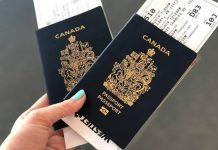Africa-Press – Namibia. ALTHOUGH BASIC education (pre-primary level to the last grade of secondary education) is generally regarded as having the power to liberate, education has historically been used as an instrument of oppression, it is plausible therefore to state that basic education still embodies elements of past policies, laws and practices and perpetuates black oppression.
Prejudice alienates black people from their identity and belief in their capacities, their unity, their heritage and, ultimately, in themselves. Kenyan author Ngugi Wa Thiongo best describes this as a “cultural bomb”. He says the purpose of the “cultural bomb” is to make a people want to identify with that which is furthest removed from themselves.
Our education curriculum reinforces racial hierarchies. This is discernable from our history textbooks which paint a saviour image of colonialism. However, colonialism brought more damage to black people than good, if any. It has led to black generational trauma, to the incessant pillaging of African resources for white economic expansion. Colonialism was beneficial to Europeans, not to Africans. To suggest the contrary is fraudulent.
“For many years, European companies traded with Africans … by the 19th century the companies wanted to control the resources. This had a significant impact on African trade.” The foregoing is an extract from the Platinum Grade 8 history textbook, which is part of our new curricula. The undertone is that seizing black resources was good for black people. This is deplorable.
History textbooks also devote very little content to African countries and their full heritage. African countries receive significant notice only when depicted as venues of colonial activities. There are also connotations that Africans needed redemption from noble white missionaries. This is a misrepresentation of the black identity. Africans were largely a peaceful people whose spirituality manifested itself in their daily life and activities. If anything, the white missionaries were more devious than noble.
The average Namibian pupil would have learned in primary school or in secondary school that Europeans were the greatest discoverers, explorers and inventors of all great sciences, which suggests white superiority over other races. Early African advances in science are omitted. (For example, Africans knew enough science to concoct poison for arrowheads.)
This is a distortion of our history and identity. Not only does it make light of the gruesome events that transpired in the lives of black people, it also creates a “black is inferior” and “white is saviour” mindset among black children.
This ‘black-inferior, white-superior’ ideology is devoid of truth. It is imperative that black heritage be celebrated in our teachings and that our history be accurately reflected. Colonialism should be reflected as the culturally destructive and exploitative system that it is. PRINCIPLES AND PROGRESS
In our curricula, whiteness is equated to excellence and blackness to inferiority. This self-negation migrates from childhood into adulthood. As adults, black people are unable to identify subtle racial biases in their environment because they unconsciously accept such prejudices to be normal. As Carter G Woodson puts it in his book ‘The Miseducation of a Negro’, “if you make a man feel that he is inferior, you do not have to compel him to accept an inferior status, for he will seek it himself”.
The danger of this type of education is that it creates a black community that is not self-aware, not self-confident, and consequently not self-reliant. This aggravates existing systemic racial prejudices. It also hinders the progress on emancipation that some black people are constantly working to achieve.
At the heart of the philosophy of black consciousness is the principle of black unity, the importance of regaining our sense of self and reclaiming our identity. This ideology, which emerged during the leadership of the renowned Stephen Bantu Biko during the 1960s, aimed at re-energising collective black defiance against apartheid through mental emancipation through the restoration of black confidence and pride. One of its profound principles is that “blackness is not an aberration from the normal which is white”, that we are in the completeness of ourselves as merely black.
Black liberation, whether social, economic or political, will only follow once psychological liberation has been achieved; true liberation through a radical education and not the kind that measures progress by the eloquence of a black man’s English. Education should mean more than just a process of imparting information.
There is a need to remodel our basic education curricula. We need a black conscious and more self-aware black community which can stand united in defiance against racial oppression. We ought to teach from textbooks related to the progress of the race, books that attribute more content on neglected areas of various aspects of African life and history.
For More News And Analysis About Namibia Follow Africa-Press






